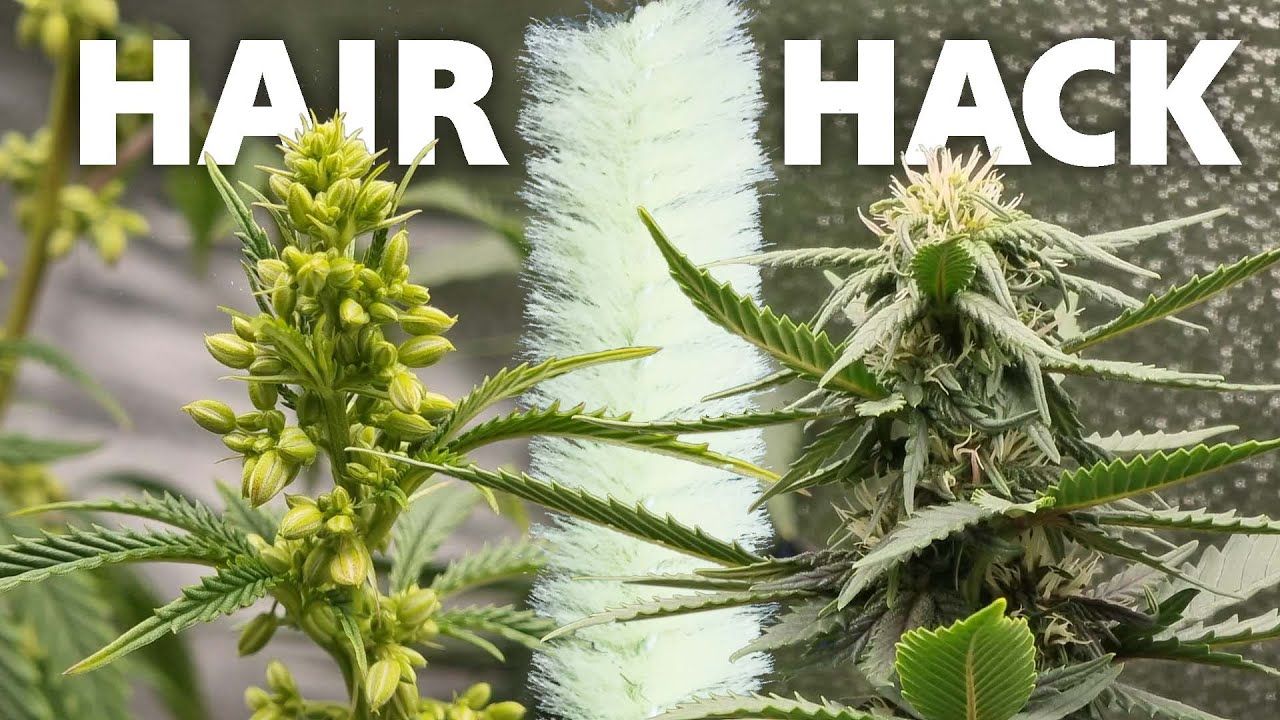How to Identify Male and Female Cannabis Plants
| thcscout | Grow | No Comments on How to Identify Male and Female Cannabis Plants
Share
- No bookmark found
how to tell a male apart from a female cannabis, weed or marijuana plant can often be confusing because females have calyxes or bracts which may look like balls or male pollen sacs. The key difference between the two types of balls is that females will have a stigma or pistil poking out of the balls which looks like a whitish yellow pipe cleaner that is intended to catch pollen in the air. This calyx of bract will eventually turn into a seed pod when pollinated. Some cannabis plants that come for breeders who do not stress test their strains or crosses may develop nanners or turn into hermaphrodites which possess both pistils, stigmas and male pollen sacs and flowers. This is due to poor ethics from releasing untested strains and a lot of new growers are not aware that there are hermie proof strains. It is important to research genetics before finding a strain or cross to grow and a video on how to choose a strain can be seen here: https://youtu.be/X09RU2wY7xc
To support our content, check out our Patreon: https://www.patreon.com/howweedgrow
📷 Instagram: https://www.instagram.com/growweedeasier
ℹ️ More tutorials; https://www.howweedgrow.com/
📅 Full My Proven Feed Schedule: https://www.howweedgrow.com/Howweedgrow%20Ultimate%20Chart%20Cheat%20Sheet.pdf
PROOF: https://discord.gg/nwDXKeBV4g
💬 For questions, comments or to chat: https://discord.gg/zKG85AuQBj
Accurately identifying male and female cannabis plants is a fundamental skill for growers aiming to maximize their yields and produce high-quality buds. By understanding the key characteristics associated with each gender, you can effectively manage your cultivation practices, remove male plants promptly, and allow your female plants to flourish. With this knowledge, you’ll be well on your way to successful cannabis cultivation.
Understanding Cannabis Plant Anatomy:
Before delving into gender identification, it’s crucial to familiarize yourself with the basic anatomy of cannabis plants. Cannabis plants consist of leaves, stems, nodes, and flowers or buds. The reproductive organs are housed within the flowers, which develop differently in male and female plants.
Male Cannabis Plants:
Male cannabis plants are responsible for producing pollen, which is required for fertilizing female plants. Here are some key characteristics to help you identify male cannabis plants:
Pre-Flowering Stage: Male plants typically start to show their gender a week or two earlier than females during the pre-flowering stage.
Pollen Sacs: Look for small, grape-like clusters called pollen sacs. These sacs contain pollen and can be found in the nodes where branches meet the main stem.
No Pistils: Male plants do not have pistils, which are small hair-like structures found on female flowers. Instead, you’ll find thin, straight, and elongated structures within the pollen sacs.
Female Cannabis Plants:
Female cannabis plants are coveted by growers as they produce the resinous flowers rich in cannabinoids and terpenes. Identifying female plants is crucial to ensure a robust harvest. Here’s how to identify them:
Pistils: Female plants exhibit pistils, which are hair-like structures emerging from the nodes. These pistils are often white or light-colored and develop into the buds.
Calyx Structure: Look for swollen, tear-shaped calyxes at the nodes, which house the reproductive parts of the plant.
Lack of Pollen Sacs: Unlike male plants, female cannabis plants do not produce pollen sacs.
Removing Male Plants:
To prevent unwanted pollination and the development of seeds in female plants, it is recommended to remove the male plants from your growing area as soon as they are identified. This ensures that energy is directed towards bud production in female plants, resulting in higher-quality yields.
Exceptions and Hermaphroditism:
While the majority of cannabis plants exhibit clear male or female traits, it’s essential to be aware of exceptions. Hermaphroditism is a condition where plants develop both male and female reproductive organs. These plants, known as hermaphrodites, can self-pollinate and jeopardize the quality of your crop. Regular monitoring and removal of hermaphroditic plants are necessary to maintain a healthy, seedless harvest.












